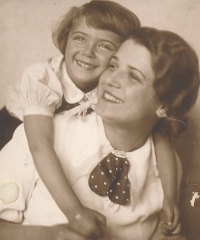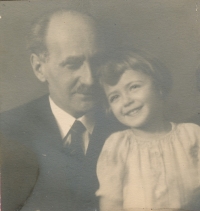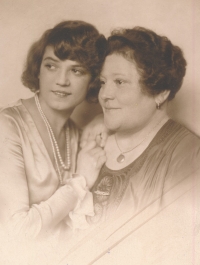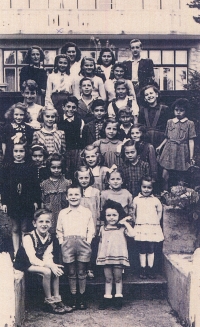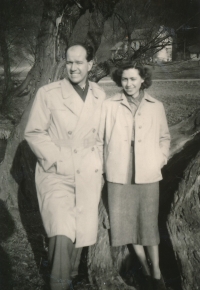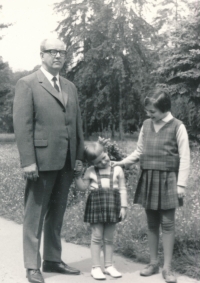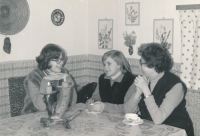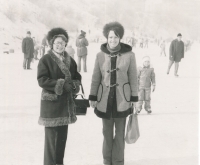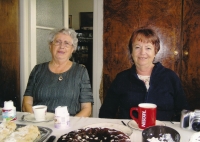Don’t cry, the war will be over soon, I said when I left for Terezín.
Download image
Kitty Pavelková, née Lachsová, was born on 30 September 1931 in Ostrava to Cecilia and Hugo Lachs. Her father came from a Jewish family, her mother from a Catholic one. At home they observed both Jewish and Christian customs. After the occupation, they moved to Prague to avoid the anti-Semitic attacks their father faced. Only one of her friends knew that Kitty Pavelková was half-Jewish; the family kept it a secret from the others. In 1942, a second daughter was born to the Lachs. Because of the tense situation, in 1944 the father tried to commit suicide to protect his family. In February 1945, Hugo Lachs was summoned to a transport. Kitty, then 13 years old, was to go with him. They boarded the AE3 transport bound for Terezín on 11 February 1945. Mother and sister stayed in Prague. In the Terezín ghetto, Kitty Pavelková worked first in the office and later in the garden, which gave her access to fresh vegetables. Her father lived in another building, but they met every evening. On May 12, 1945, they returned to Prague. Most of father’s family perished in the concentration camps. Kitty Pavelková married in 1952, graduated from the pedagogical high school and worked as a kindergarten teacher all her professional life. In 2024 she lived in Prague.
